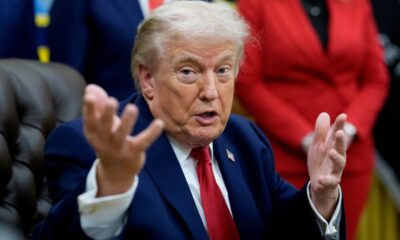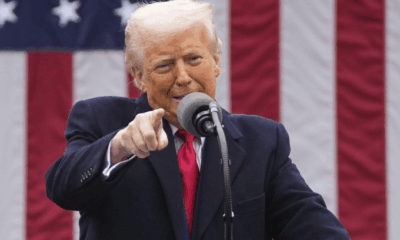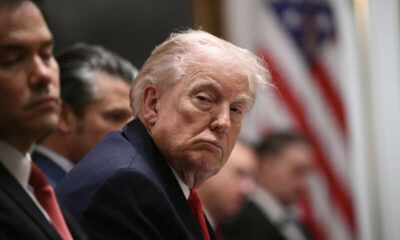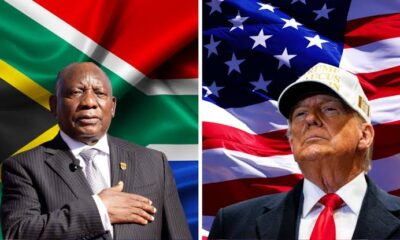Business
High Stakes in Washington: Ramaphosa-Trump Meeting Could Redefine US-SA Trade Relations

This week’s meeting between President Cyril Ramaphosa and US President Donald Trump has become a high-stakes moment for South Africa’s economic future. Trade experts and political analysts alike say that the outcome could determine whether South Africa maintains its highly favorable access to US markets—or risks billions in lost exports.
According to Professor Emeritus Andre Thomashausen of Unisa, South Africa’s trade balance with the US is almost 100% positive. That success, however, may be in jeopardy.
“A total of R150 billion in exports hangs in the balance,” Thomashausen warns. “This is too high a price to pay for national pride.”
He added that 55% of South Africa’s agricultural exports to the US come from the Western Cape, meaning that any failure to reintroduce zero import tariffs could have devastating effects on jobs and regional economies.
Diplomacy on Edge
Ramaphosa’s trip to Washington comes at a tense moment. Diplomatic relations between Pretoria and the White House have cooled, and recent political developments are adding pressure to the dialogue. One such flashpoint: 49 Afrikaners who accepted Trump’s offer to migrate to the US as refugees, citing fears of persecution—an allegation strongly denied by the South African government.
Christo van der Rheede, Executive Director of the FW de Klerk Foundation, believes the meeting is a vital opportunity for clarity and progress.
“The spotlight should be on trade and strategic cooperation,” he said. “South Africa remains the US’ largest trading partner in Africa, with trade exceeding $20 billion. Around 600 US companies operate in South Africa, employing up to 200,000 people.”
He added that Ramaphosa’s unique diplomatic access to figures like Putin, Zelenskyy, Iran, and Hamas places him in a strategic position to assist in global peace efforts.
Concerns Over Sanctions and Agoa
Not all experts are optimistic. Dr Noluthando Phungula, an international relations scholar at the University of KwaZulu-Natal, says that the Trump administration’s displeasure with South Africa’s stance on the International Court of Justice (ICJ) case against Israel has already triggered sanctions in trade, health, and defence sectors.
“The risk of losing Agoa benefits and USAID support is real. South Africa needs to approach this meeting with diplomatic care.”
Hopes for Constructive Outcomes
Despite the tensions, Theuns Eloff of the Afrikaner Leadership Network hopes the meeting will open the door to broader cooperation.
“This one meeting won’t solve everything, but it should lay the groundwork for ministers in key sectors to engage with the US administration on trade and tariffs.”
He also stressed that the emigration of a small number of Afrikaners does not reflect the views of the broader community.
“We want our issues acknowledged, but it must be clear that there is no genocide against Afrikaners, and no land exploitation.”
What’s at Stake
With more than R150 billion in annual exports, over 200,000 jobs linked to US businesses, and agricultural sectors like the Western Cape hanging in the balance, the Ramaphosa-Trump meeting may define the next decade of South Africa’s trade relationship with the United States.
The world is watching—and so are South Africans whose livelihoods depend on the outcome.
{Source: IOL}
Follow Joburg ETC on Facebook, Twitter , TikTok and Instagram
For more News in Johannesburg, visit joburgetc.com



























